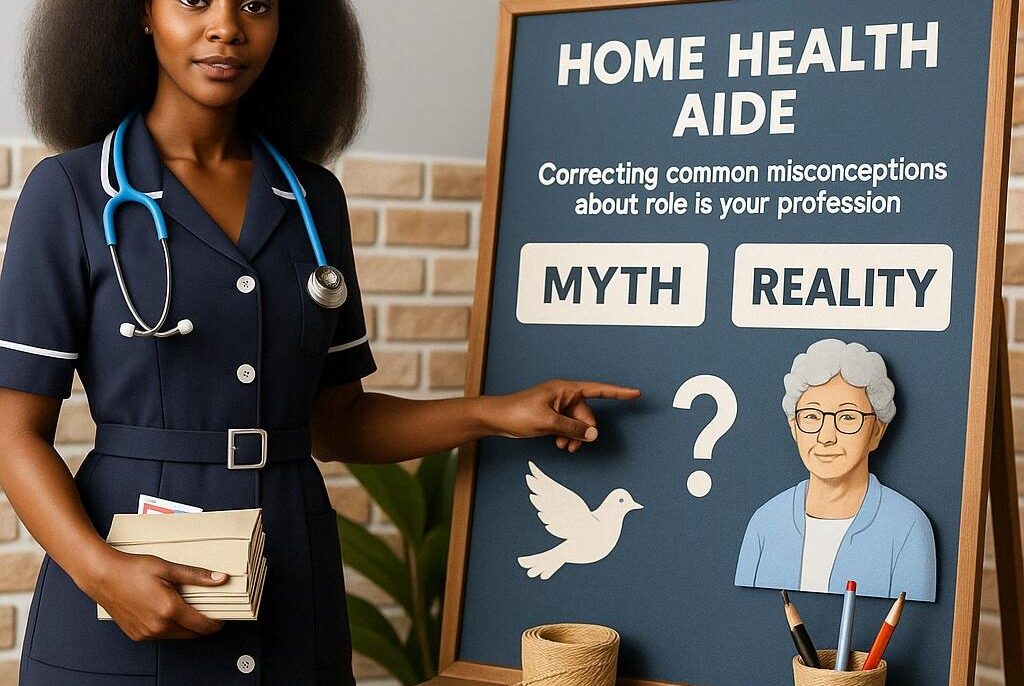
Understanding the Role of Home Health Aides
Home health aides play a critical role in providing essential care and support to those in need. However, there are several misconceptions about their duties and capabilities that even some caregivers believe. It’s important to dispel these myths for the well-being of both the aides and the individuals they assist.
Myth 1: Home Health Aides Are Just Babysitters for Adults
One common misconception is that home health aides are merely adult babysitters. This belittles their skills and the diverse responsibilities they handle:
- Administering medications correctly.
- Assisting with daily living activities such as bathing and dressing.
- Monitoring vital signs and communicating changes to healthcare professionals.
**Home health aides** are trained to provide a comprehensive level of care, ensuring the safety and well-being of their clients.
Myth 2: Anyone Can Be a Home Health Aide
Some believe that anyone can jump into the role of a home health aide without training. This is far from the truth. Aides need:
- **Certification** from accredited programs.
- Knowledge of basic medical procedures and emergency responses.
- Strong communication skills to interact with clients and their families.
The requirement for proper education enhances an aide’s ability to provide quality care, distinguishing them from untrained individuals.
The Emotional and Physical Demands
Myth 3: Home Health Aides Don’t Need Emotional Intelligence
It’s a widespread belief that home health aides only need physical skills. However, emotional intelligence is equally important:
- Understanding client emotions to provide comfort and support.
- Managing stress effectively to maintain a positive environment.
- Building trust with clients to facilitate open communication.
Being emotionally attuned enables aides to deliver compassionate and personalized care, contributing to better client outcomes.
Myth 4: Home Health Aides Have Limited Career Opportunities
Many think that a career as a home health aide has limited growth potential. In reality, there are multiple paths for advancement:
- Pursuing further education to become a licensed practical nurse or registered nurse.
- Specializing in specific areas such as dementia care or hospice support.
- Transitioning into supervisory roles within home health agencies.
Home health aides have the opportunity to expand their careers, reflecting their dedication and skill in caregiving.
Financial and Occupational Misunderstandings
Myth 5: Home Health Aides Are Always Underpaid
While compensation can vary, the perception that all home health aides are underpaid doesn’t hold true across the board:
- **Competitive wages** are available in regions with high demand.
- Benefits such as health insurance and paid leave are offered by many employers.
- Opportunities for overtime and bonuses can increase earnings.
Understanding regional variations and potential benefits can offer a more accurate picture of the financial prospects for home health aides.
Conclusion: Debunking Myths for Better Care
Dispelling these myths is essential for recognizing the **true value** home health aides bring to the healthcare system. By appreciating their skills and opportunities, we can better support their professional growth and ensure quality care for those they serve.
For more insights on caregiving and professional development in the healthcare industry, explore our other blog posts or visit the Bureau of Labor Statistics for employment data and trends.






0 Comments